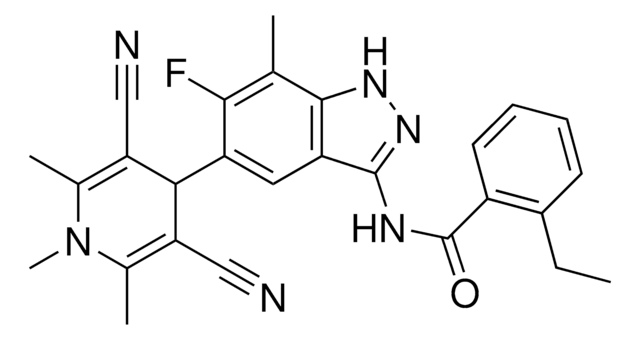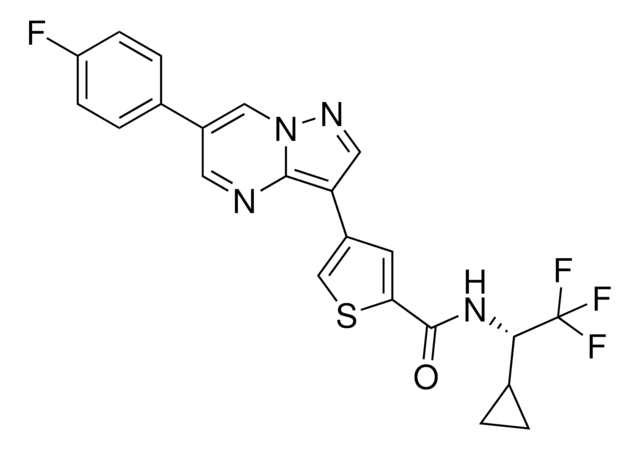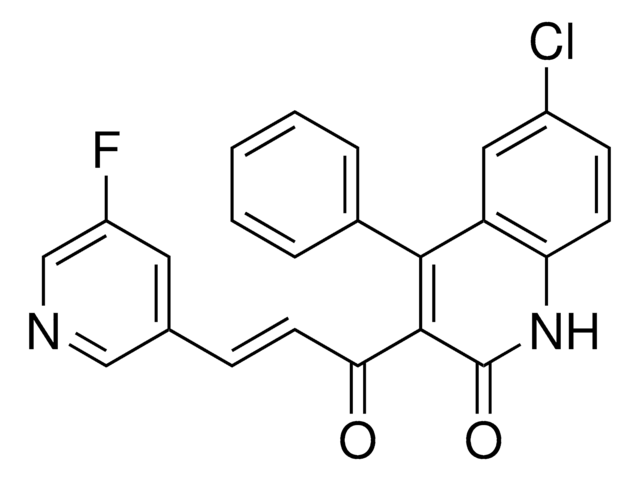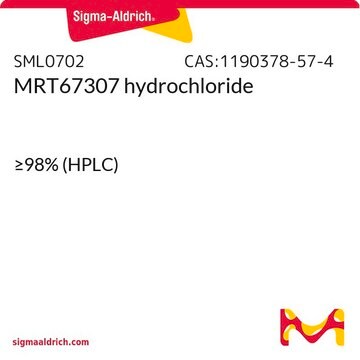Wichtige Dokumente
SML1540
SBI-0206965
≥98% (HPLC)
Synonym(e):
2-((5-Bromo-2-((3,4,5-trimethoxyphenyl)amino)pyrimidin-4-yl)oxy)-N-methylbenzamide
About This Item
Empfohlene Produkte
Qualitätsniveau
Assay
≥98% (HPLC)
Form
powder
Farbe
white to beige
Löslichkeit
DMSO: 20 mg/mL, clear
Lagertemp.
−20°C
SMILES String
BrC1=C(OC2=C(C(NC)=O)C=CC=C2)N=C(NC3=CC(OC)=C(OC)C(OC)=C3)N=C1
InChI
1S/C21H21BrN4O5/c1-23-19(27)13-7-5-6-8-15(13)31-20-14(22)11-24-21(26-20)25-12-9-16(28-2)18(30-4)17(10-12)29-3/h5-11H,1-4H3,(H,23,27)(H,24,25,26)
InChIKey
NEXGBSJERNQRSV-UHFFFAOYSA-N
Anwendung
Biochem./physiol. Wirkung
Signalwort
Warning
H-Sätze
Gefahreneinstufungen
Eye Irrit. 2 - Skin Irrit. 2 - STOT SE 3
Zielorgane
Respiratory system
Lagerklassenschlüssel
11 - Combustible Solids
WGK
WGK 3
Flammpunkt (°F)
Not applicable
Flammpunkt (°C)
Not applicable
Analysenzertifikate (COA)
Suchen Sie nach Analysenzertifikate (COA), indem Sie die Lot-/Chargennummer des Produkts eingeben. Lot- und Chargennummern sind auf dem Produktetikett hinter den Wörtern ‘Lot’ oder ‘Batch’ (Lot oder Charge) zu finden.
Besitzen Sie dieses Produkt bereits?
In der Dokumentenbibliothek finden Sie die Dokumentation zu den Produkten, die Sie kürzlich erworben haben.
Kunden haben sich ebenfalls angesehen
Unser Team von Wissenschaftlern verfügt über Erfahrung in allen Forschungsbereichen einschließlich Life Science, Materialwissenschaften, chemischer Synthese, Chromatographie, Analytik und vielen mehr..
Setzen Sie sich mit dem technischen Dienst in Verbindung.

















